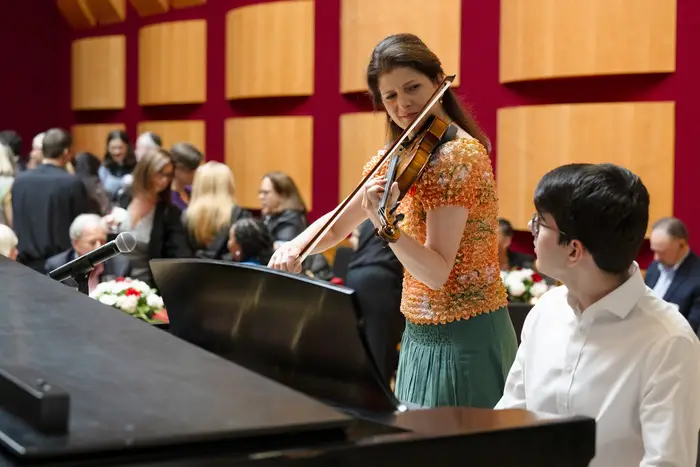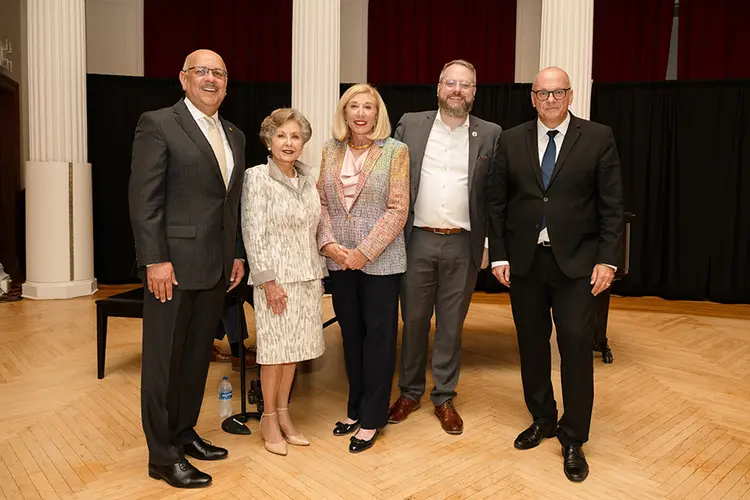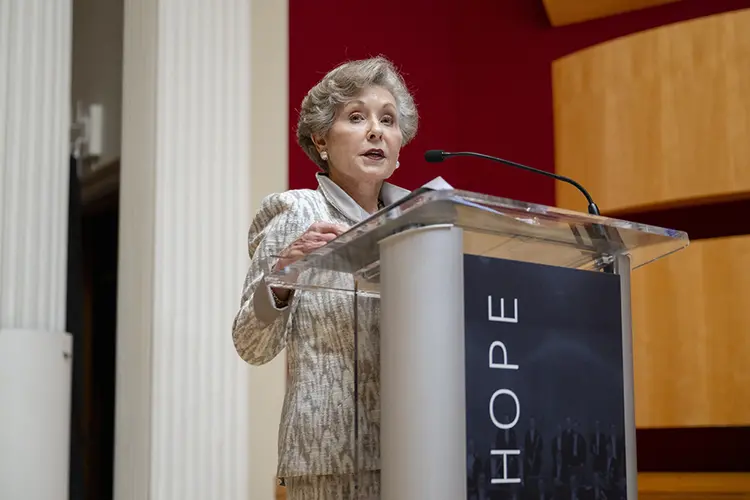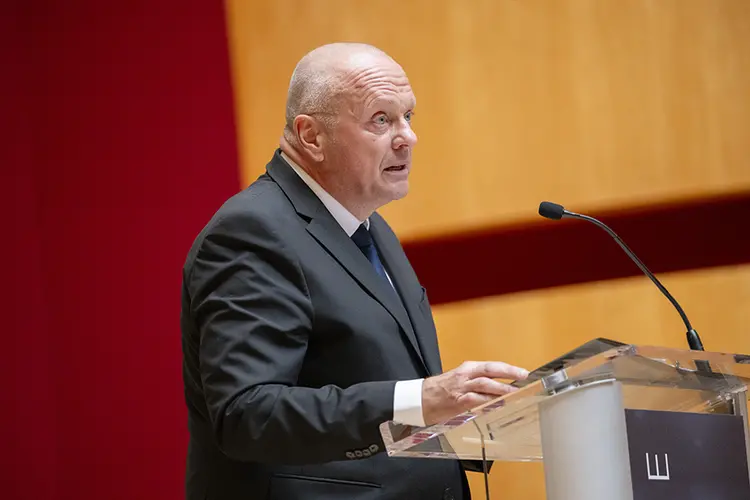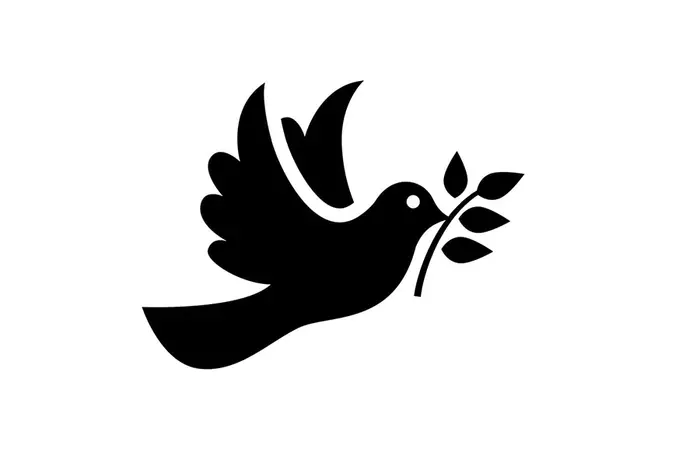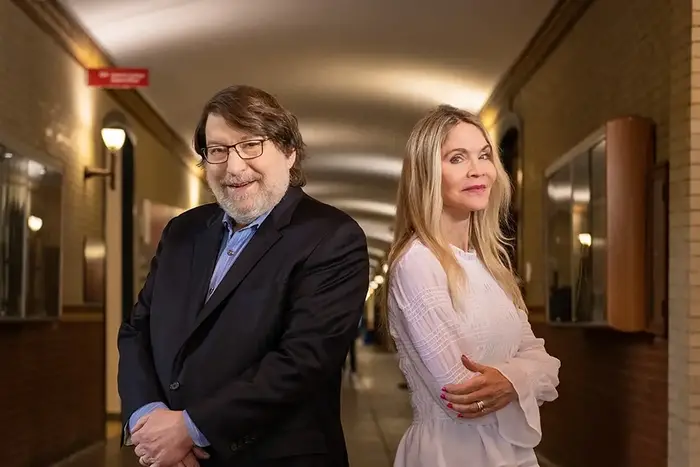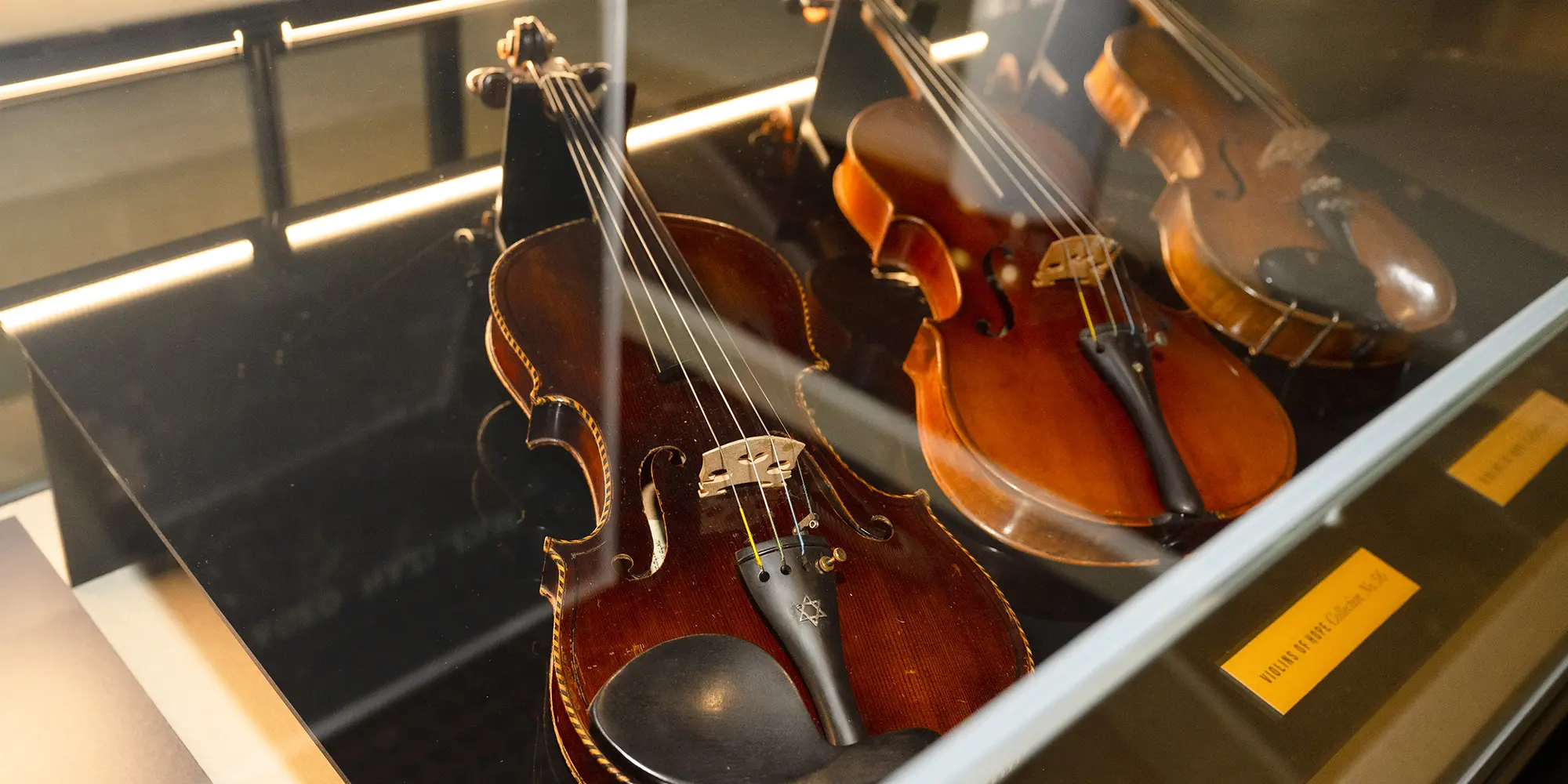
CMU Welcomes Violins of Hope to Posner Center
Media Inquiries
A crowd of community partners, sponsors, state and local officials and special guests gathered at a special reception Oct. 5 on the Carnegie Mellon University campus to celebrate the opening of Violins of Hope Greater Pittsburgh(opens in new window), a community project centered on the lessons of diversity, equity and inclusion. The exhibit is being housed in the Posner Center on the CMU campus and was curated by CMU Libraries’ Sam Lemley, curator of special collections, and Heidi Wiren Bartlett, associate director of creative.
Andreas Michaelis, the German ambassador to the U.S., shared the story of a Berlin violin maker in the 1930s who secretly defaced the violin of a German Jew by engraving a swastika on the inside. The violin was later given to Israeli luthier and violin maker Amnon Weinstein who shared the story with Michaelis in Weinstein’s shop in Tel Aviv, Israel. “This violin of treachery was never assembled again once its hidden message had been discovered. The voice of this violin must be forever silenced,” Michaelis shared. “It is our duty never to forget the past. We must learn our lessons and shape the future. We must not let hatred win.”
Violins of Hope is a collection of over 100 restored violins that were played by Jewish musicians during the Holocaust and restored by Weinstein and his son, Avshalom (Avshi). The Weinsteins have spent 25 years locating and restoring these violins as a tribute to those killed in the Holocaust, including 400 of their own relatives. The project has been traveling around the world since 2016.
“These instruments showcase how music and the human experience can unite us, inspire us and connect us across history, geographies and cultures." — CMU President Farnam Jahanian
“There can be no question about it: Amnon’s and Avshi’s Violins of Hope play an essential role in this. They teach us about the past and are constant reminders of it,” Michaelis said.
Other speakers at the event included Farnam Jahanian(opens in new window), Carnegie Mellon president; Sandy Rosen, chair of Violins of Hope Greater Pittsburgh and co-chair Pat Siger; and Jake Pawlak, deputy mayor for the City of Pittsburgh and director for the Office of Management and Budget.
United Through Music
Monique Mead(opens in new window), associate teaching professor and director of music entrepreneurship in the School of Music(opens in new window), played a restored violin once owned by Joyce Vanderveen, a child prodigy violinist, actress and famous ballerina at the Oct. 5 reception celebrating the opening of Violins of Hope.
“These instruments showcase how music and the human experience can unite us, inspire us and connect us across history, geographies and cultures,” said Jahanian. “This exhibit reminds us that we must purposefully stand against hate. It speaks to the relentless pursuit of knowledge … truth and understanding. Ultimately, it challenges us to continue to build a more compassionate and harmonious world.”
“The Weinsteins’ dedication brings to life the stories and voices of those who played these instruments. Restored with the utmost care and love, these instruments stand as symbols of hope, perseverance and the indomitable human spirit,” said Rosen. “The melodies that once flowed through their strings now have the power to inspire us, and to remind us of the triumph of good over evil. ”
The exhibit runs through Nov. 21 and is free and open to the public; however, tickets(opens in new window) are required to enter. Additionally, Violins of Hope Greater Pittsburgh is presenting a variety of regional programming related to the exhibit that reinforce the valuable lessons of diversity, equity and inclusion. Please visit Violins of Hope Pittsburgh events page(opens in new window) for more information.
